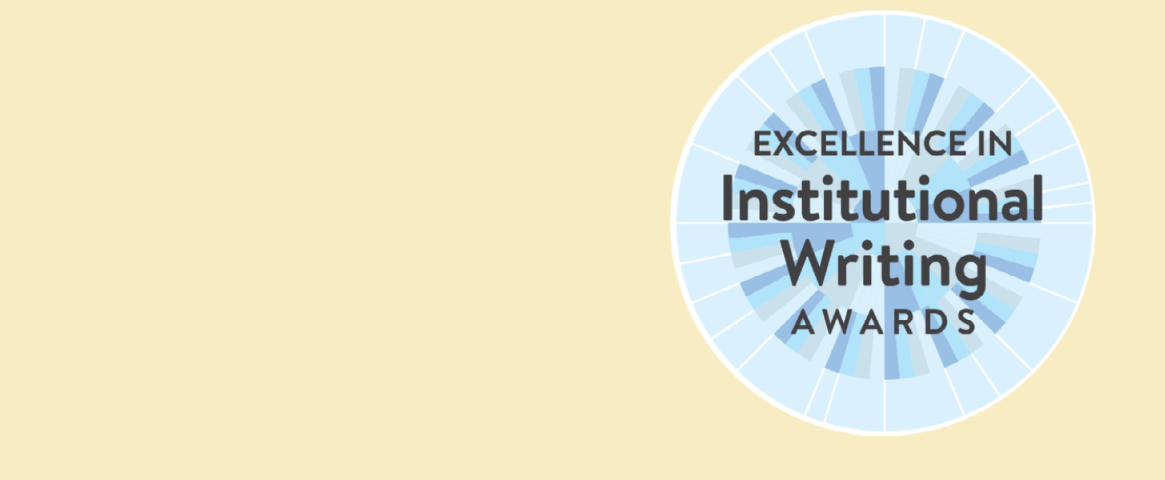We are pleased to announce the winners of the 2021 Excellence in Institutional Writing Awards, sponsored by the National Association of Science Writers:
· In the long-form category: “The World According to Weather Satellites,” by Jenny Marder (@jennymarder), Jefferson Beck, Tiffany Small, and Rafael de Ameller, NASA and NOAA
· In the short-form category: “Drug Lord’s Hippos Make Their Mark on Foreign Ecosystem,” by Mario Aguilera (@mario_maguilera), University of California, San Diego
The winner in each category will receive a cash prize of $2,000. The awards were presented Sept. 29, during the virtual awards night at ScienceWriters2021.
.png)

Marder (senior science writer) and Beck (senior video producer) work at NASA's Goddard Space Flight Center in Greenbelt, Md.; Small (graphics specialist) and de Ameller (visualization lab lead) work at the NOAA Environmental Visualization Lab in Silver Spring, Md. The judges commented: “‘The World According to Weather Satellites’ grabbed us from the very first paragraph with a powerful lede and wowed us with the way it made weather instruments into compelling characters. The storymap format developed the piece as a rich multimedia experience where text, images, animations and videos maintain reader interest throughout the entire story. As readers, we felt that we could engage as lightly or as deeply with the content as we wished, and either way, we learned about the fascinating history and societal impacts of weather satellites. The story, which included researchers from diverse backgrounds, represented both the science and engineering sectors of NOAA and NASA while remaining accessible to a non-scientist audience. Overall, it was a pleasure to read this piece, and it inspired us to incorporate a storymap strategy into our own storytelling.”
Aguilera is the director of communications for biological sciences at the University of California, San Diego. Of his entry, the judges said: “This is a fascinating story—the kind you can’t help but tell your friends about. The writer makes the most of its inherent drama with crisp, lively writing and clearly articulates the scientific importance of this unique cross-cultural collaboration.” Aguilera received Honorable Mention in this category last year.
In each of the two categories, two entries received honorable mention.
In the long-form category, honorable mention went to:
· “Saving Mexico’s Lost World,” by Carrie Arnold, bioGraphic, California Academy of Sciences
· “‘We Thank Miss Mary Tsingou,’” by Virginia Grant, Los Alamos National Laboratory
Honorable mention in the short-form category went to:
· “Random Chance in Early Brain Development Sets Adult Fruit Flies’ Personalities,” by Rachel Tompa, Allen Institute
· “Researcher Makes Art from Flowers and Pollen,” by Conor Gearin (video producer) and Greta Friar (interviewer), Whitehead Institute for Biomedical Research
The judging committee for the long-form entries consisted of Miles Hatfield (NASA’s Goddard Space Flight Center), Sara LaJeunesse (Penn State University), Beth Miller (Washington University in St. Louis), and Katie Yurkewicz (Argonne National Laboratory). For the short-form entries, the judging committee consisted of Diana Kenney (Marine Biological Laboratory), Patricia Koning (Lawrence Livermore National Laboratory), and Lisa Marshall (University of Colorado Boulder). The Awards Committee was co-chaired by Alla Katsnelson (freelance) and Jyoti Madhusoodanan (freelance), and the Excellence in Institutional Writing Awards were coordinated by Awards Committee members Barbara Gastel (Texas A&M University) and Jill Sakai (freelance and University of Wisconsin–Madison). Committee members recused themselves from judging entries from their own institutions.
First granted in 2018, the NASW Excellence in Institutional Writing Awards were established to recognize high-caliber publicly accessible science writing produced on behalf of an institution or other non-media organization. In 2021, the Awards Committee updated the description and purpose of both the Science in Society Journalism Awards and Excellence in Institutional Writing Awards, to emphasize the importance of diversity. We especially seek to recognize science writing that is shaped by a variety of perspectives, because such writing enables us to tell more broadly relevant stories that better serve our readers and communities. Therefore, we consider diversity in topics, sources, audience, and authors to be a critical component of excellence.
Entries for next year's competition, for material published or broadcast in 2021, are due February 1, 2022. Entry will open at www.nasw.org/excellence in December 2021. We know there is even more timely coverage and great writing out there from underrepresented writers tackling diverse, overlooked issues and communities. Please do your part in encouraging talented friends and colleagues to submit their good work.
The largest organization devoted to the professional interests of science writers, the National Association of Science Writers fosters the dissemination of accurate information regarding science through all media devoted to informing the public. Its members include more than 2,500 journalists, authors, editors, producers, public information officers, students, and others who write and produce material intended to inform the public about science, health, engineering, and technology. For more information, visit www.nasw.org or write director@nasw.org.

